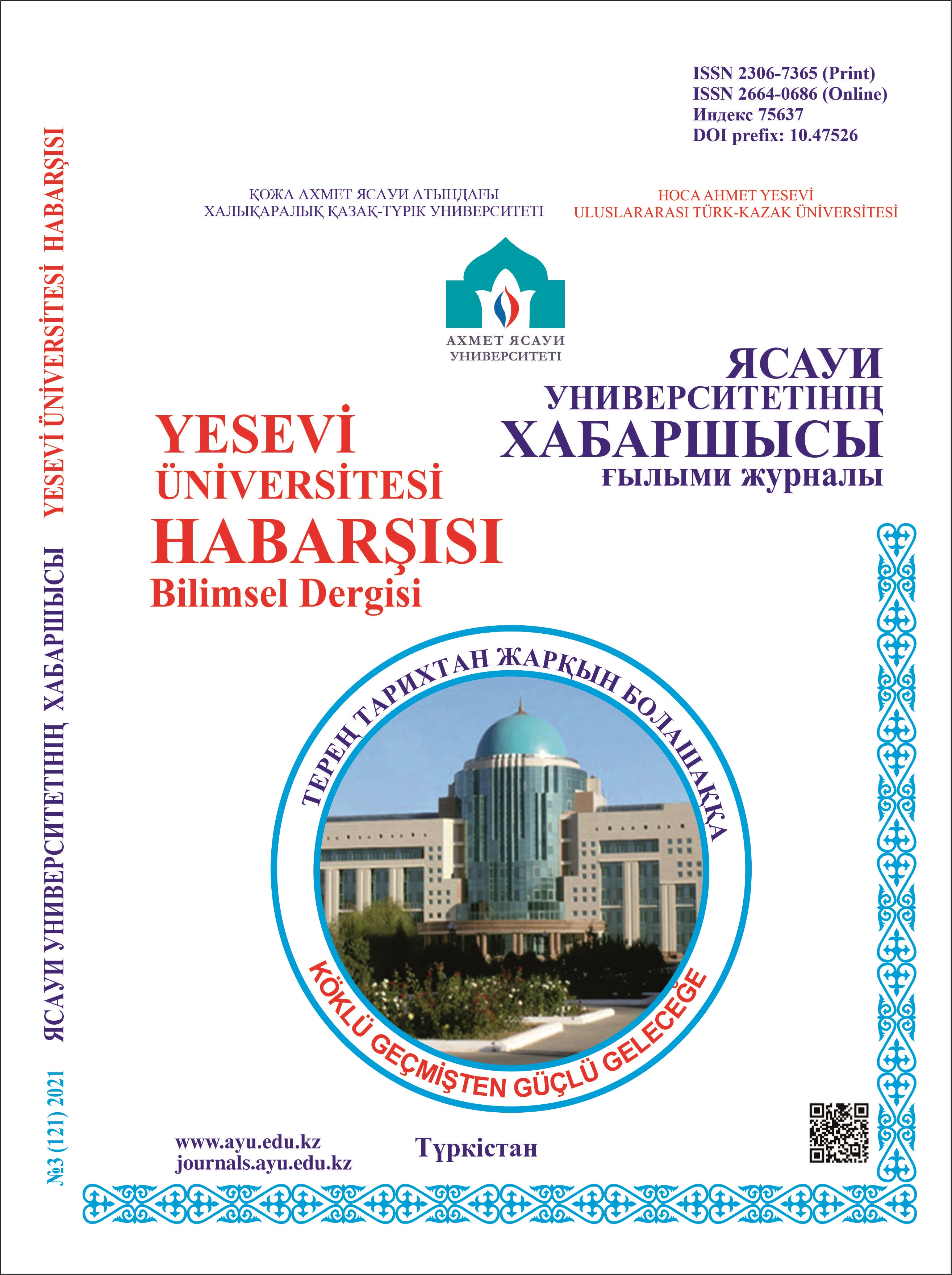THE ROLE OF SOCIAL MEDIA IN DEVELOPING INTERCULTURAL COMMUNICATIVE COMPETENCE (ICC) AMONG UNIVERSITY STUDENTS
161 119
Anahtar Kelimeler:
Intercultural Communicative Competence, Social Media, University Students, Digital Intercultural Learning, Reflective Practice.Özet
In the modern era of global interconnectedness, social media platforms have a profound impact on how university students engage with cultural diversity and develop their intercultural communicative abilities. This research examines how students' understanding, perspectives, and skills – crucial for effective intercultural communication – are shaped by their daily interactions on social media platforms. Drawing on Byram's (1997) framework for intercultural communicative competence, the study explores how students perceive and interpret intercultural encounters on digital platforms such as Instagram, TikTok, Reddit, and language exchange apps.
Twenty-four students, enrolled in international and multilingual programs in one local university in South Kazakhstan, participated in a semi-structured interview and maintained a reflective digital journal for six weeks, employing a high-quality research methodology. Through thematic analysis, four key themes emerged: (1) the impact of cultural perspectives outside the classroom, (2) the negotiation of identity and empathy in intercultural conversations, (3) the cultivation of critical cultural awareness through online discourse, and (4) obstacles such as stereotyping and miscommunication. The research suggests that social media fosters spontaneous and meaningful cross-cultural interactions, which contribute to the development of intercultural competence, particularly in terms of openness, curiosity, and critical thinking. Even seemingly, harmless actions, according to students commenting on posts, participating in online discussions, or joining virtual communities, offer a wealth of opportunities to learn about cultural norms, beliefs, and communication experiences.
Research shows the benefits of incorporating digital multiculturalism into the education experience of learning a formal language. Promoting and developing global citizenship through international education, the study suggests that language teachers and educational institutions need to encourage students to think critically about social media and digital platforms.
Referanslar
BIBLIOGRAPHY
Byram M. ‘Cultural awareness’ as vocabulary learning, Language Learning Journal. – 1997. – №16:1. – Р. 51–57. https://doi.org/10.1080/09571739785200291
Fantini A.E. Assessing intercultural competence: Issues and tools // In: D.K. Deardorff (Ed.). The SAGE handbook of intercultural competence. – SAGE Publications, 2009. – P. 456–476.
Byram M., Gribkova B., Starkey H. Developing the intercultural dimension in language teaching: A practical introduction for teachers. Council of Europe. – Strasbourg, 2002. – 41 p.
Thorne S.L. The ‘intercultural turn’ and language learning in the crucible of new media // In: F. Helm, S. Guth (Eds.). Telecollaboration 2.0 for language and intercultural learning. – Bern, Switzerland: Peter Lang, 2010. – P. 139–164.
Helm F. The practices and challenges of telecollaboration in higher education // Language Learning & Technology. – 2015. – №19(2). – P. 197–217.
Liaw M.-L., English K. Online socialization and intercultural competence // Language Learning & Technology. – 2017. – №21(2). – Р. 11–25.
Blattner G., Fiori M. Facebook in the language classroom: Promises and possibilities // Instructional Technology and Distance Learning. – 1997. – № 6(1). – Р. 17–28.
Godwin-Jones R. Using mobile technology to develop intercultural competence // Language Learning & Technology. – 2018. – №22(3). – Р. 11–17. https://doi.org/10125/44659 9. Kramsch C. The multilingual subject // Modern Language Journal. – 2011. – №95(2). – Р. 324-326.
Deardorff D.K. Identification and assessment of intercultural competence as a student outcome of internationalization // Journal of Studies in International Education. – 2006. – №10(3). – Р. 241–266. https://doi.org/10.1177/1028315306287002
Jenkins H. Confronting the challenges of participatory culture: Media education for the 21st century. – MacArthur Foundation, 2006. – 68 р.
Astaño J.L. Effectiveness of TikTok in enhancing students' communication skills: A meta-analysis // International Journal of Technology in Education. – 2025. – Т. 8, №3. – Р. 861–890.
Yun I.H. The mediating effects of SNS emotional expression and utilization ability on students' class attitudes // Journal of Internet, Broadcasting and Communication. – 2025. – №23(1). – Р. 59–72. 14. Xodjamurodova S. Integrating social media platforms to improve university students’ speaking proficiency // International Conference on Modern Development in Pedagogical Linguistics. – 2025. – Т. 2, №4. – Р. 37–39.
Nasir M.K.M., Tao J., Karim A.A. Effects of integrating movie-based learning for enhancing Chinese university students’ intercultural sensitivity and cultural self-confidence. Dirasat: Human and Social Sciences. – 2025. – Vol. 52, №6. https://doi.org/10.35516/hum.v52i6.7813

